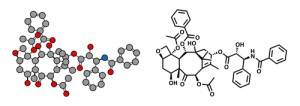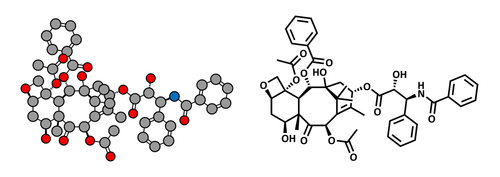 The regulatory body of Switzerland, SwissMedic, has just approved an anti-cancer drug indicated for the treatment of metastatic pancreatic and breast cancer. Abraxane (paclitaxel formulated as albumin bound nanoparticles, or nab-paclitaxel) is a product of Celgene Corporation, a New Jersey-based biotechnology company that develops pharmaceutical treatments for cancer and inflammatory diseases. At present, the drug has received approval in over 30 countries as a treatment for metastatic pancreatic cancer, and in over 40 for the treatment of metastatic breast cancer.
The regulatory body of Switzerland, SwissMedic, has just approved an anti-cancer drug indicated for the treatment of metastatic pancreatic and breast cancer. Abraxane (paclitaxel formulated as albumin bound nanoparticles, or nab-paclitaxel) is a product of Celgene Corporation, a New Jersey-based biotechnology company that develops pharmaceutical treatments for cancer and inflammatory diseases. At present, the drug has received approval in over 30 countries as a treatment for metastatic pancreatic cancer, and in over 40 for the treatment of metastatic breast cancer.Today, research into therapeutic solutions for treating metastatic breast cancer (MBC) or Stage IV breast cancer is still rare. Researchers normally begin studying patients in later stages of the disease, but tend to shift their focus to early and preventive solutions once enough data on safety and tolerance has been gathered, leaving limited progress on treating MBC. This new approval in Switzerland, however, is oriented toward treating both pancreatic and breast cancer in advanced stages, showing that SwissMedic is among the forward-thinking public health organizations in the world today.
One of the 21st century’s most popular icons was lost to advanced pancreatic cancer. The late and former Apple CEO Steve Jobs had gone to Switzerland in his final years to receive treatment for his condition. The approval of Abraxane gives hope to thousands of Swiss patients and medical tourists, as pancreatic cancer is this country’s 4th leading cause of cancer-related deaths, with its metastatic form having an average life expectancy of only 3-6 months. This drug is the first treatment for metastatic pancreatic cancer to be approved in Europe in almost 7 years. Prospects for the drug’s use in treating advanced breast cancer are also promising.
[adrotate group=”3″]
Abraxane was given SwissMedic approval based on its promising performance during MPACT (Metastatic Pancreatic Adenocarcinoma Clinical Trial), a Phase 3 international clinical trial, wherein it was administered together with gemcitabine; and during another Phase 3 trial that involved 454 patients that compared its efficacy against that of a standard paclitaxel formulation.
This drug’s approval comes shortly after the publication of new international guidelines on the management of MBC, which were discussed by breast cancer experts during last year’s 2nd International Consensus Guidelines Conference on Advanced Breast Cancer (ABC) in Lisbon.

